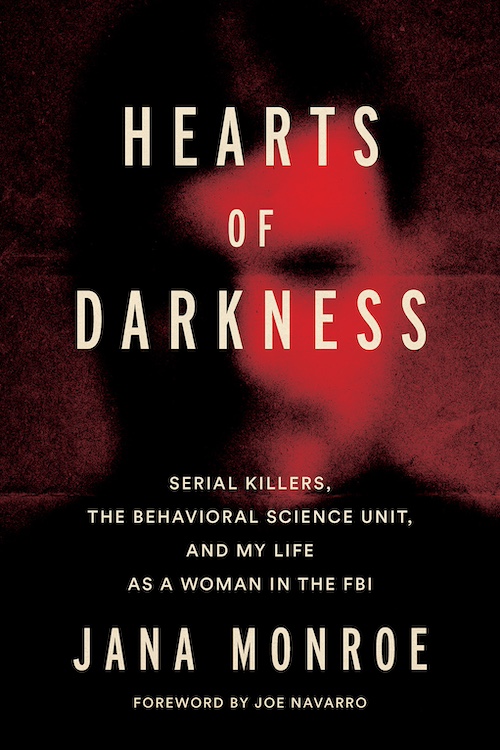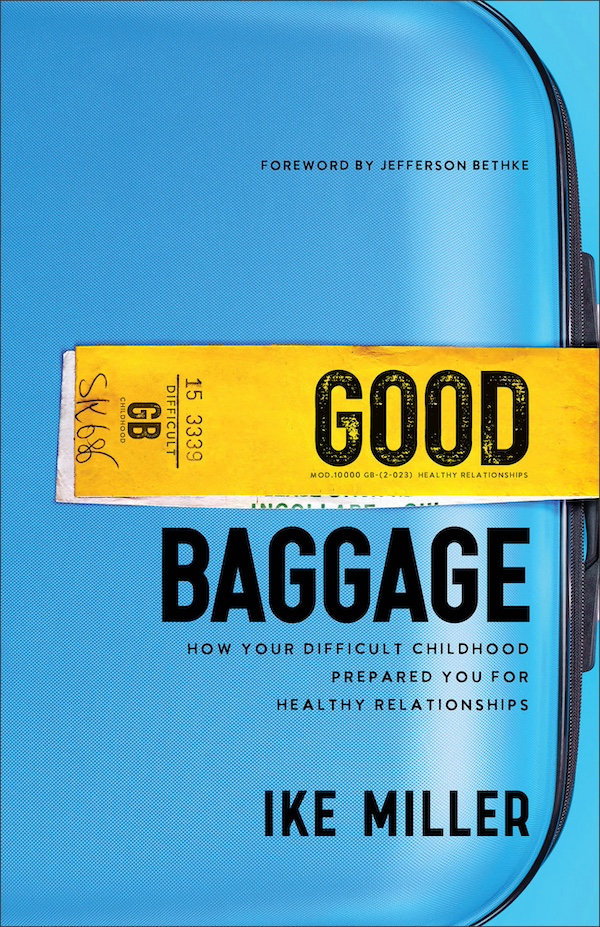Faith: A Lighthouse for Finding Our Way ft. Jana Monroe & Ike Miller
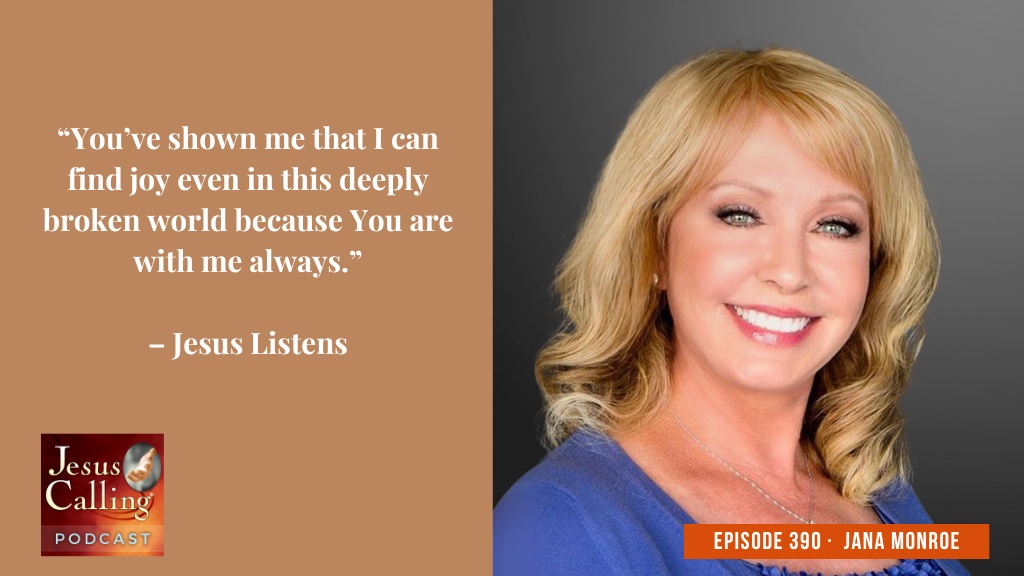
Content Warning: This episode mentions violence and may not be suitable for all listeners.
Jana Monroe: I think, unfortunately, our society, our culture right now is almost at an all-time low. Mental health is equally as important as physical, if not more. If you don’t have the proper balance in your mental health, it doesn’t matter how physically well you are. When you’re walking with God, it can bring that light into your life.
Faith: A Lighthouse for Finding Our Way ft. Jana Monroe & Ike Miller – Episode #390
Narrator: Welcome to the Jesus Calling Podcast. Living with a negative worldview, often born out of childhood trauma or difficult experiences in one’s life or work place, can feel as if you’re perpetually shrouded in a bleak fog. The world may seem unkind and unfair, every experience tainted by the shadows of your past. Sometimes it can feel like there’s danger around every corner, stealing our joy and our ability to live without constant fear.
Former FBI investigator Jana Monroe worked on some notorious and heinous murder cases, including those of Ted Bundy and Jeffrey Dahmer. She shares about the demanding challenges of interviewing serial killers and how it affected her mindset and her view of the world—and how prayer and daily reflection with God was a lifesaver in rescuing her from fear. Ike Miller, a pastor and author, shares about the hurdles he faced during his formative years, navigating the difficulties of growing up with an alcoholic father and overcoming unhealthy coping mechanisms.
Let’s start with Jana’s story.
Jana Monroe: Hi everyone, my name’s Janna Monroe. I had a thirty-year career in law enforcement from a probation department to a local police department to a twenty-two year career in the FBI, and then I transitioned into corporate America.
At age thirteen, I knew what I wanted to do and I never deviated from that. I had two motivations. One is I love this country and the fact that we are a nation of laws and liberties, and I wanted to somehow be involved in protecting that equilibrium, that balance of justice, if you will. And then I hate bullies. I can’t stand people who take advantage of other people, that pick on the vulnerable. And I thought, How can I address both of those callings? And law enforcement seemed like the answer. I feel very fortunate that was what God put in my heart.
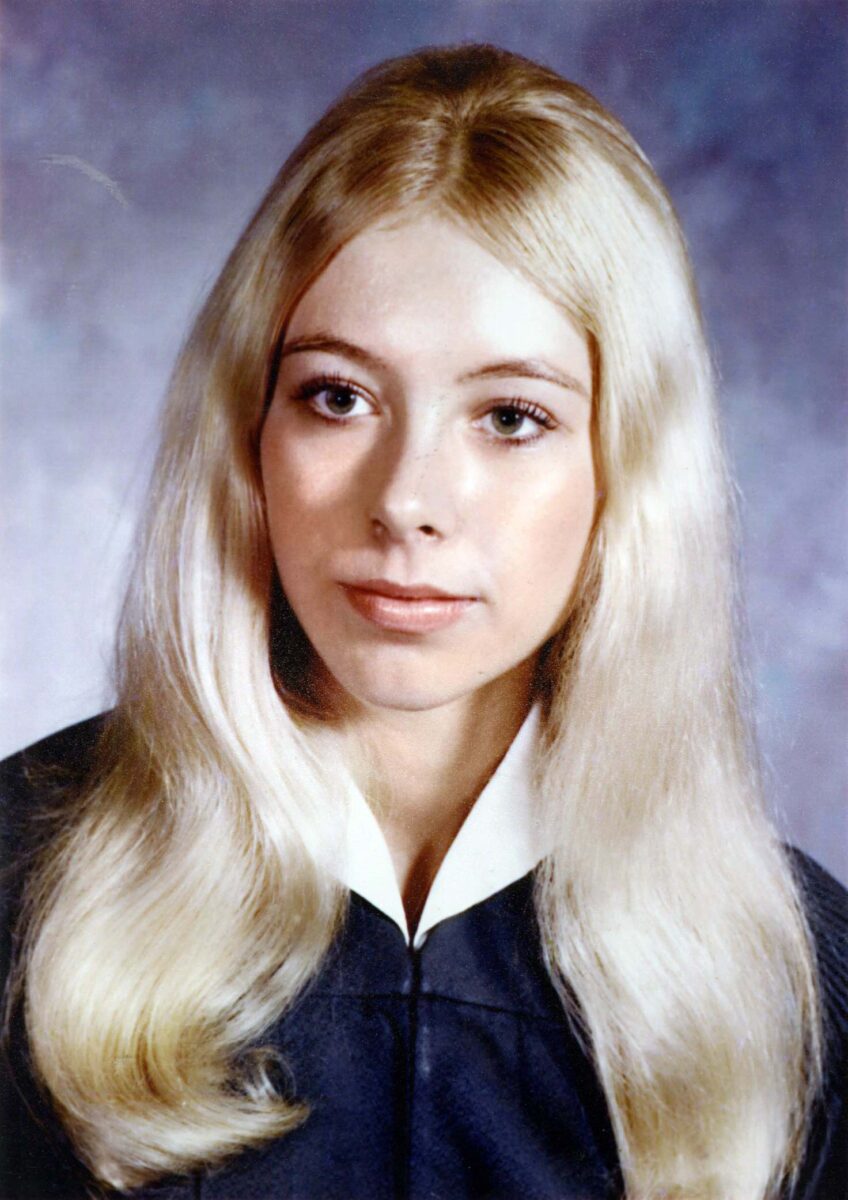
I was an agent like everybody else doing investigations, and when I was in the Tampa, Florida division, I became what they called a coordinator, meaning I helped local police departments and sheriff’s departments box up any kind of forensic evidence that they had for Quantico, for the behavioral science unit, on a case that they were stumped on or had gone cold.
I had worked on a couple of homicide cases and investigations when I was in the police department and probation, so I took an interest in what I consider the abhorrent and bizarre behavior of serial killers. I delved into it and did a lot of reading, a lot of research on it. The behavioral science unit to me was just like the perfect place to be, to try to understand more of that behavior and in some way help out.
So when there was an opening, I ended up applying for it and to my wonderful surprise, I got the position. There was no welcome wagon—we’re talking about 1990. Women were considered, especially in law enforcement or male-dominated careers, like second class citizens, in that you had to prove yourself there. So there was no seat at the table for me, but if there’s no seat at the table, bring a folding chair. I was very assertive at inserting myself to some of the consultations and the cases of my male colleagues. And I think once I proved that I had a really strong work ethic, I would work overtime, I would volunteer for things, trying to establish more of a work portfolio, that I had experience, the more I was accepted.
Coming Face-to-Face with Serial Killers
Even today, I’ve still been a little surprised how much public interest there is in homicide and serial killers. It’s kind of like the human condition when you look at an accident on the freeway, it’s compelling and repulsive at the same time.
The research that we did when I was in the behavioral science unit was interviewing targeted serial killers. We were attempting to find out if they had any idea and were sufficiently introspective to understand why they did what they did.
We conducted a lot of different interviews with what we called a standardized protocol, meaning we would ask very similar and the same questions so as to have the results be as genuine as possible for research. What I learned overall is nobody is the same, of course, but they were very sociopathic, no conscience. Often, their responses would be with a flat affect or something like you and I’d be talking about, Oh yeah, I had a bad haircut or something. The tone, the demeanor did not match the heinous nature of the subject matter that they were talking about. I learned I had to adopt what I called a clinical detachment, a clinical approach, kind of analogous to a doctor with patients and delivering bad news. I would detach myself and just accept the information. And I could not be judgmental, because here again, we’re trying to elicit information from them. It really was a concerted effort on my part and that of my colleagues to accept that information and use it analytically and not judgmentally.
Fear Seeps into Jana’s Worldview
I had been dealing with a lot of cases where women had been killed with knives. We referred to them as weapons of opportunity because the offender had broken into their house and used their own knives, like maybe there had been a knife in a butcher block somewhere in the kitchen.
I started hiding our knives in the dryer, and to me, that made perfect sense because it was like if someone breaks in, they’re going to have to bring their own knife. Somehow that seemed perfectly logical to me. And Dale, my husband, pointed out that it was not. I was scared of that evil, but I would pray. I would pray and I would have conversations with the Lord, and always there would be this overwhelming sense of calmness.
“I would pray and I would have conversations with the Lord, and always there would be this overwhelming sense of calmness.” – Jana Monroe
Jana’s Journey From Fear to Faith
My ritual, if you will, in the morning, is to read Jesus Calling, and I had a girlfriend of mine who’s a psychologist give it to me years and years ago. I have the large one that I have on a special little chair and a desk that I read every morning, and then when I travel, I have the smaller one so I always have it with me. But it is my way of connecting to Jesus in the morning. It is of course short to read. You don’t just read it, I take it and then make reference to the Bible passage on it and pray on it and think about it, and it’s amazing how it sets the tone for my day.
I began my journey, or He began that journey for me, of starting to look at the good in other people. It was a process. It was certainly nothing that happened overnight, but by having those conversations, He opened up my heart and mind to a whole different perspective and optic of looking at things.
“I began my journey, or He began that journey for me, of starting to look at the good in other people. It was a process. It was certainly nothing that happened overnight, but by having those conversations, He opened up my heart and mind to a whole different perspective and optic of looking at things.” – Jana Monroe
If anybody tells you that they understand exactly why people kill and what they do, I would challenge and say they’re not telling the truth, because everybody kind of manufactures different answers. That process that I had in speaking with the Lord and opening up my heart and my mind, it would calm me. Now, that doesn’t mean it wouldn’t come back again, like, Oh my God, this evil can be overwhelming. But I have faith that the Lord is going to show me the way out of this and show me a different path, and I was never disappointed.
“I have faith that the Lord is going to show me the way out of this and show me a different path, and I was never disappointed.” – Jana Monroe
Narrator: Be sure to check out Jana’s new book, Hearts of Darkness, at your favorite retailer.
Stay tuned to Ike Miller’s story after a brief message.
Looking For Someone To Talk To?
This episode is sponsored by BetterHelp.
As we enter into another New Year, maybe you’re feeling the pressure to “reinvent” yourself, or make a lot of changes. Though this practice can be helpful, it can also feel overwhelming as we try to “improve” different areas of our lives, and often we can be setting ourselves up for failure and disappointment. When I’ve felt the need to make a change in my life and I’m not sure where to start, I have often sought the help of a therapist. Therapy helps you find your strengths, so you can ditch the extreme resolutions and make changes that really stick. If you’re thinking of starting therapy, give BetterHelp a try. It’s entirely online, designed to be convenient, flexible, and suited to your schedule. Just fill out a brief questionnaire to get matched with a licensed therapist, and switch therapists any time for no additional charge. Progress comes one step at a time, and therapy can be that jumping off point to lasting and meaningful change.
Visit BetterHelp.com/JesusCalling today to get 10% off your month. That’s BetterHelp.com/JesusCalling.
Our next guest is Ike Miller, pastor of Bright City Church. Growing up with an alcoholic father, Ike learned firsthand how the trauma from that situation caused him to develop ineffective coping mechanisms, simply to survive the experience. As an adult, he shares how he became a constant people pleaser, which ultimately led him to anxiety and emotional exhaustion.
Ike Miller: My name is Ike Miller, and I am a pastor in Durham, North Carolina, where my wife and I lead Bright City Church. I am an author and a speaker.
Life with An Alcoholic Parent
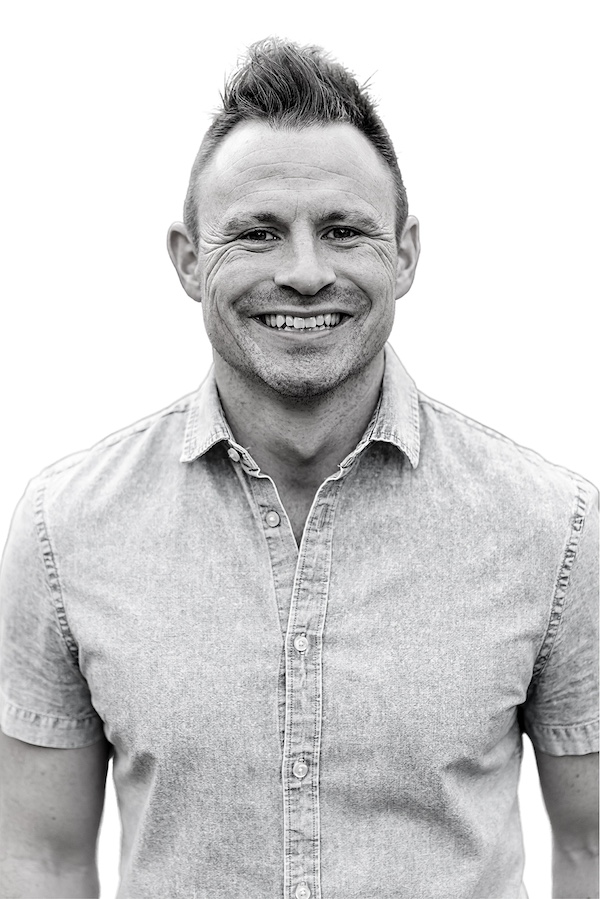
I grew up in an environment where there was a good bit of dysfunction. My father struggled with what we would call an alcohol use disorder or alcoholism, and that caused lots of different kinds of chaos in my family. It ultimately led to my parents’ divorce and many things that affected me that I didn’t even realize for years later that were a part of who I am that I had to disentangle and had to work through. I knew that it wasn’t healthy, but at the same time, I didn’t really know how dysfunctional [it was] because I really didn’t have a whole lot to compare it to.
I developed in my childhood environment, in particular, what we now call codependency. This was a tendency to want to do whatever I needed to do in order to keep the environment around me safe and to keep myself safe. The way that this plays out a lot of times is as people pleasing or approval seeking or keeping the peace. But really what you’re trying to do is you’re trying to anticipate, How do I become whoever I need to be in this situation in order to appease my father, to make sure he’s happy with me, to make sure that I am safe?
Another coping mechanism I developed similar to that was this keen ability to read the emotions and the body language of people around me because I needed to be able to know very quickly, Is my dad angry? Is he happy? Is he sad? Is it safe for me to be here? Do I need to get out of here? I felt this intense burden to try to take care of everyone, to try to make sure everything was okay, to do my best to control my environment, because that is what guaranteed me the best outcome. But what that led to for me as an adult was I was just simply trying to be who I thought the people around me wanted me to be, so that they would be happy with me, and I would feel relationally safe. When it came to reading people’s body language, that turned into reading people’s minds, I thought if I could just anticipate what you want from me, if I could meet those expectations, then I would be safe and happy.
Then with kind of feeling this need to take care of everyone and to make sure everything’s okay, that ultimately turns into just immense anxiety. It turns into perfectionism as an adult. It turns to over-functioning in all of our relationships. It leads to emotional exhaustion. And so really, for me, I began to rid myself of some of these unhealthy behaviors when I honestly started paying attention to the pain that these things were causing me: anxiety, depression, emotional exhaustion, and being able to do the work to connect those back to childhood experiences and that environment so that I could begin to disarm the impact of some of those things on me as an adult.
“I began to rid myself of some of these unhealthy behaviors when I honestly started paying attention to the pain that these things were causing me: anxiety, depression, emotional exhaustion, and being able to do the work to connect those back to childhood experiences and that environment so that I could begin to disarm the impact of some of those things on me as an adult.” – Ike Miller
Pain Doesn’t Die If You Bury It
One of the things that I often tell people, whether that is in my congregation in preaching or in one-on-one conversations, is pain in the past doesn’t die just because we bury it. And I think that there can be this mentality of, Well, if I just leave that in the past, it won’t affect me anymore.
“One of the things that I often tell people, whether that is in my congregation in preaching or in one-on-one conversations, is pain in the past doesn’t die just because we bury it.” – Ike Miller
A lot of what I want to do is help people pay attention to the pain they’re experiencing in their relationships now and then kind of connect the dots back to where does that originate? Does that originate in a painful relationship from your past? Maybe it wasn’t when you were a child, but maybe it was a dating relationship that was unhealthy or a friend group that abandoned you and left you out of things. Let’s connect the pain that you’re experiencing now to some of the pain that maybe you experienced in the past so that we can heal it from the root instead of just treating the symptoms.
The reality is, just because we ignore [our pain] it does not mean it’s not impacting us. And the fact is, if we are ignoring it, it probably is working against us in some really unhealthy ways. And when we choose not to deal with it, I think there’s something in us that thinks, You know, I’m punishing them because I’m not dealing with this, or, Why do I have to do the work? I didn’t cause this. And that is very true, we need to acknowledge we did not cause this pain for ourselves. Somebody else did this to us, but at the same time, we are now in a place where we have to take responsibility for those outcomes and begin to take steps for healing for our own sake, because it’s only going to hurt us if we don’t face those questions and face the past that has hurt us.
“The reality is, just because we ignore [our pain] it does not mean it’s not impacting us. And the fact is, if we are ignoring it, it probably is working against us in some really unhealthy ways.” – Ike Miller
Unpacking the Good and Discarding the Bad
When it comes to how we reflect on the good and the bad in our life and how we learn to let go of what we need to and move forward, I think it’s helpful to be clear, especially when it comes to our relational baggage. Oftentimes when we are talking about relational baggage, we’re talking about coping mechanisms that we developed in an unhealthy relationship to help us survive that relationship, but then we carry that coping mechanism into a relationship that doesn’t need it.
To give a very clear example of this, maybe you’re in a relationship where this other person is very inconsistent in how they show affection or care or love for you, and so it kind of leaves you in this place of always needing to get reassurance. Do you love me? Do you care for me? Do you want to be in this relationship with me? And so we cope by consistently asking and going back again and again. When we carry that then into a healthy relationship though, that insecurity becomes very clear because we’re asking for something that’s not necessarily needed in the same way. They’re communicating consistently that they love us. And so the healthy person in that relationship finds themselves overwhelmed by that insecurity. We’ve carried that baggage into our relationship that doesn’t need it. Those coping mechanisms served a purpose at one point. There was something about that that helped us to survive a relationship, whether that was emotionally or physically or mentally. And so how do we reclaim what was good in that and discard what was bad?
What I’ve done and a part of my process is to look at those things that I find manifesting in a lot of my relationships and say, “Where is the strength in that?” To give you an example of this might be something like how as a child growing in the environment I did, I can be controlling of my environment, I can be controlling of other people, it can lead to emotional exhaustion. It can lead to overworking and perfectionism. I want to help remove the bad, the things that lead to anxiety, the controlling of others, and when I can do that, my sense of responsibility can actually be a gift to those around me where they feel especially cared for and loved because I am so concerned about providing for their needs. So there’s a good thing in there that we can use and leverage if we can disarm the negative and the bad.
Finding Solace in God’s Presence
One of the tools that I found most helpful in my own healing journey is what I would call self-examination in God’s presence, that we need to create space in our lives, time that is set apart to be quiet, and to pay attention to the pain that we are feeling, the relational tension that maybe is going on in our lives, the fears that we are carrying, and simply opening ourselves up in God’s presence to hear what God has to say to us about those things so that we can understand on a deeper level.
One of the things that I love about Jesus Calling, is that it is intentionally creating space in our life to be still in God’s presence. Jesus Calling just does such a great job of helping us to hear Jesus’s words as they apply to our lives right now.
I think a lot of fear is rooted in something much deeper, that meaningful, intimate relationships in the past have led to pain and hurt for us. And so as much as we want what those relationships have to offer, we’re afraid of them hurting us again. And so connecting with God in prayer can help us feel less alone because it creates space for us to understand what pain and fears prevent us from connecting and experiencing intimacy now. Yes, it’s important for us to experience intimacy with God, because that can help us to feel less alone, but it can also help us to be honest with ourselves about, What are the things that are preventing me from being open to new relationships and pursuing new relationships? And then asking God to give us the courage to take those steps to pursue new relationships.
“Connecting with God in prayer can help us feel less alone because it creates space for us to understand what pain and fears prevent us from connecting and experiencing intimacy now.” – Ike Miller
Jesus Listens, May 18th:
My Creator,
This is the day that You have made! Help me to rejoice and be glad in it. I begin this day holding up empty hands of faith— ready to receive all that You are pouring into this brief portion of my life. Since You are the Author of my circumstances, I need to be careful not to complain about anything, even the weather.
I’ve found that the best way to handle unwanted circumstances is to thank You for them. This act of faith frees me from resentment and enables me to look for blessings emerging from the problems. Sometimes You show me the good that You’re bringing out of the difficulties. At all times, You offer me the glorious gift of Yourself!
I don’t want to worry about tomorrow or get stuck in the past. Instead, I seek to enjoy abundant Life in Your Presence today!
In Your joyful Name, Jesus,
Amen
Narrator: To learn more about Ike Miller, check out his new book, Good Baggage, from your favorite retailer.
If you’d like to hear more stories about the power of our choices to a new start, check out our interview with Herman Mendoza.
Next week: Yvonne Orji

Next time on the Jesus Calling Podcast, we’ll hear from comedian and actress Yvonne Orji, who shares how she was surprised to discover that God could use her to bring joy to the world, just as He created her.
Yvonne Orji: You know, obviously, as the Nigerian overachiever that I am, I was like, I need to excel at this thing. I need to be the best Christian I can be to get the best blessings that God has for me. Right? And, you know, God will use anything. God will be like, “You know what? If that’s the energy that she has coming in, I’ll take it. Over the course of the years, we’ll make it a little nuanced, but come as you are.”
